8 Herbs That Improve Sleep Quality
Getting to sleep in our society is becoming more and more of a science. To help you unwind I’m going to outline the top 8 herbs that improve sleep quality so you can feel more prepared for the demands of tomorrow.
For our ancestors, it was as simple as sundown = sleep. Our body was designed to flow with the rhythms of the earth but with introduction of modern lighting fixtures, electronic devices, and just the general fast-paced lifestyle that we all live, sleep doesn’t come as naturally as it should.
Valerian
Valerian is an herb commonly found in tea blends marketed for night-time use, but does it really do anything?
Research on valerian is mixed, but studies mostly report that valerian has anti-anxiety and sedative effects, which likely accounts for its ability to help you fall asleep faster and even get a higher quality of sleep (1, 2).
Research also suggests that valerian is able to induce a state of relaxation through a series of actions that result in higher GABA production in the brain. Specifically, a compound within valerian called valerenic acid is thought to be responsible for this effect (3).
Optimal GABA levels are crucial to improve sleep quality. Finally, valerian has been found to be effective in combination with herbs such as lemon-balm, hops, and kava kava for improving sleep quality.

Passionflower
Similar to valerian, passionflower may contribute to a better night’s sleep by upregulating GABA levels in the brain. Different studies have also shown that using passionflower has beneficial effects on anxiety, blood pressure, insulin levels, and inflammation.
Caution: Passionflowers acts as a mild MAOI (monoamine oxidase inhibitor), which is similar to the effects of some antidepressant medications. Do not use passionflower if you are currently taking an MAOI because it can amplify the effects.
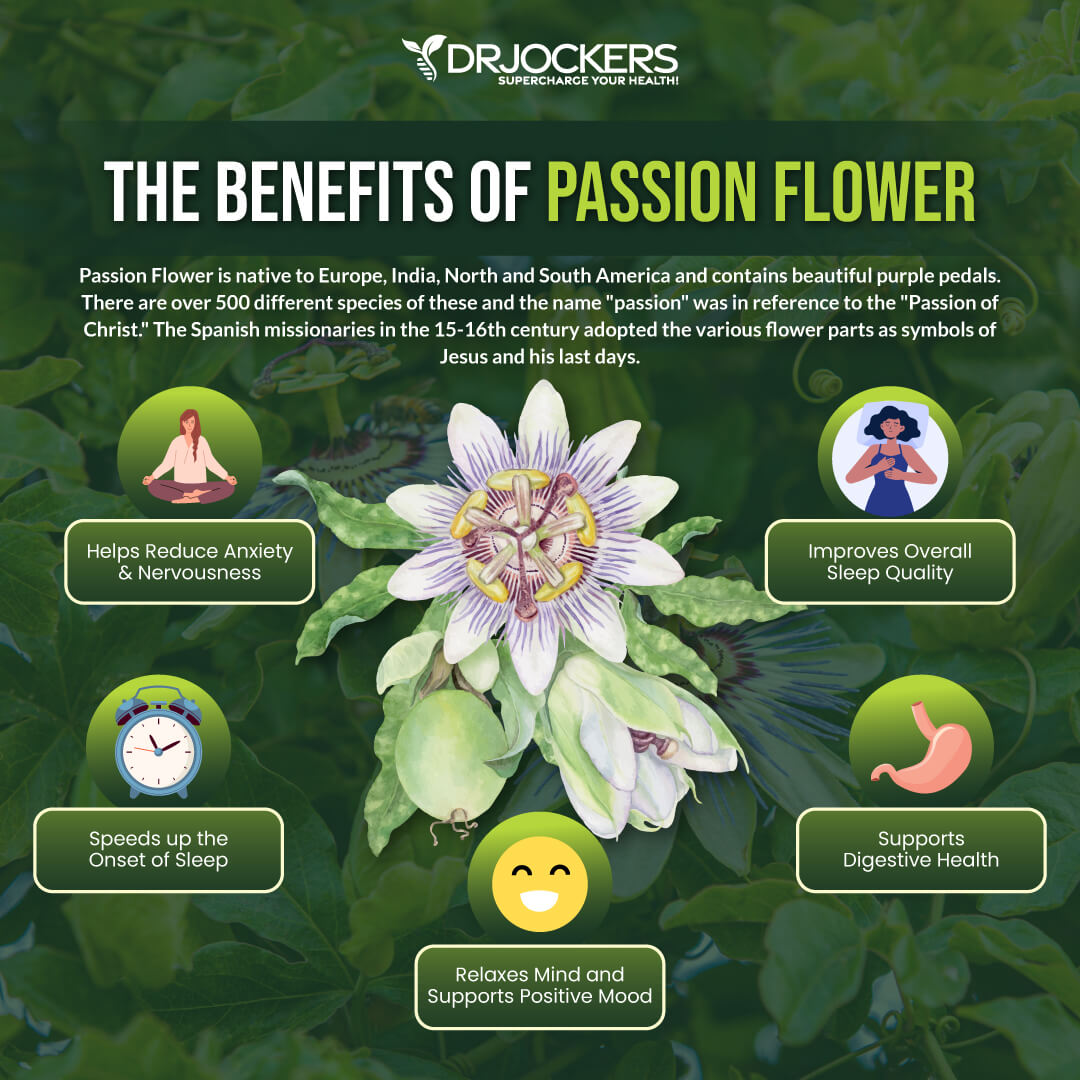
Lemon Balm
Lemon balm is a traditional European remedy that has been used for hundreds of years to calm the nerves and improve mood. Also known as Melissa, it is commonly used for aromatherapy purposes and to improve sleep quality.
The documented benefits of lemon balm are actually pretty broad and include anti-depressant, PMS relief, anti-microbial, and, of course, as a sedative. Lemon balm is thought to promote relaxation by increasing levels of the inhibitory neurotransmitter GABA in the brain. It is thought to achieve this action by inhibiting the enzyme that breaks down GABA, allowing it to remain active in the brain for longer (4).
Lemon balm can be used as a tea, tincture, or essential oil for the purpose of promoting feelings of relaxation before sleep.

Lavender
Lavender is one of my favorite herbs to improve sleep and relaxation. It is likely that your most common encounter with lavender is in essential oil form, as it is one of the most popular oils on the planet.
Not only does the scent of lavender evoke feelings of relaxation and comfort, but it also smells amazing and has extended benefits.
Studies have shown that just inhaling the vapors from lavender can upregulate antioxidant systems in the body. On top of the sleep-improving effects of lavender, this may be a health game changer. Other benefits include headache relief, topical treatment for acne, and blood sugar balancing effects.
My favorite methods of using lavender that I recommend for those who are struggling with insomnia or generalized anxiety are:
Healing Bath: Add 10-15 drops to a bathtub of warm water along with a cup of Epsom salt and soak to relieve tension. In this article, we go over a number of different healing baths.
Diffuser: Diffuse lavender oil in your bedroom and other areas of the house where you spend a lot of time. You can also sprinkle a few drops of lavender oil over your pillow before bed. Here is a great diffuser and a brand that makes good peppermint and lavender essential oil here.
Topically: Mix a few drops of lavender oil with a carrier oil like coconut, almond, or even magnesium oil and apply to the back of the neck, bottoms of the feet, and abdomen before bed.
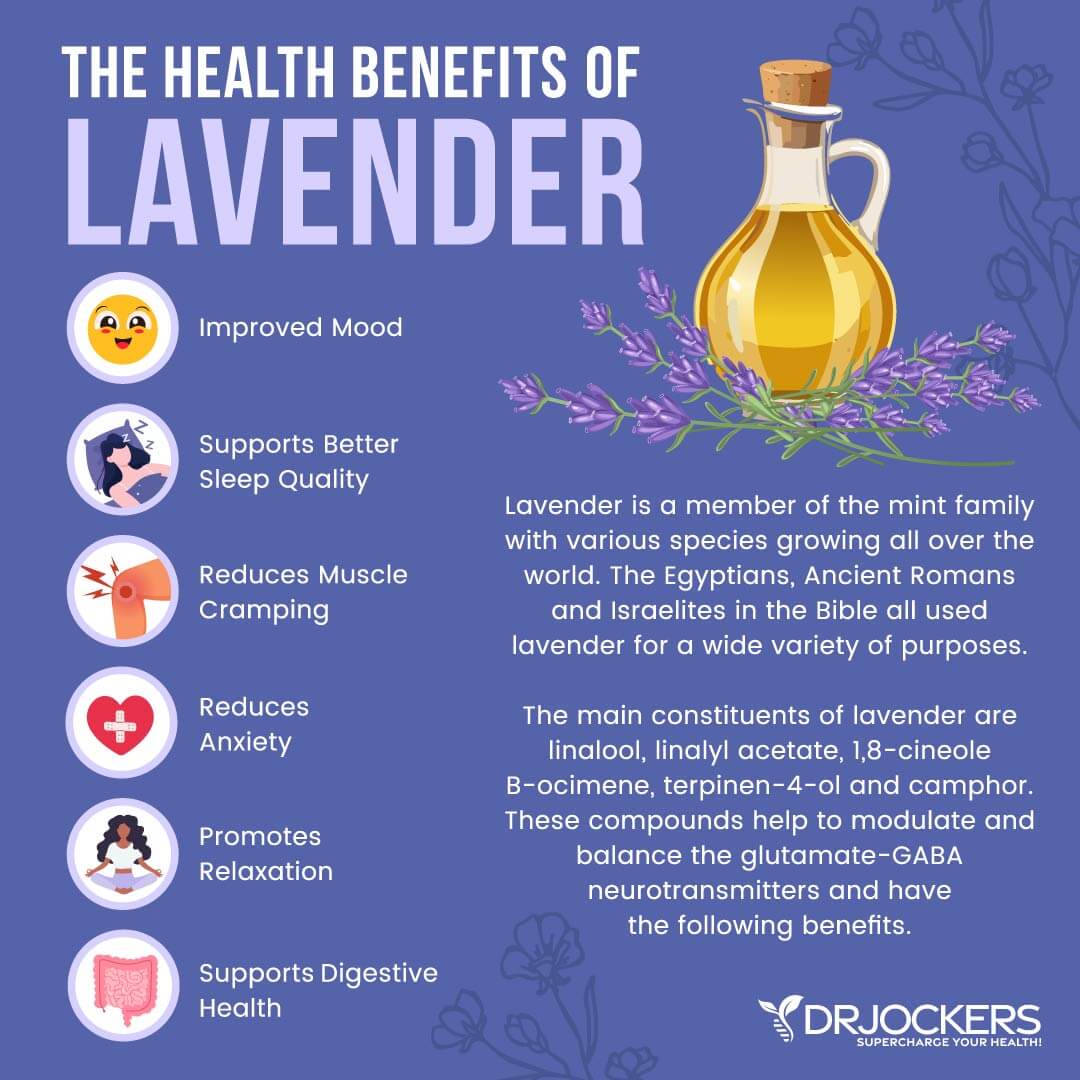
Peppermint
Peppermint is often associated with stimulation, but it may actually help you get a better night’s sleep. Although I wouldn’t diffuse peppermint essential oil in my bedroom at night, it might be a great addition to your nighttime tea.
Peppermint doesn’t necessarily induce sleep, but it can provoke some physiological changes in the body that may help improve the quality of your sleep.
Peppermint may improve sleep by:
- Opening airways and allowing for healthier breathing and better oxygenation of tissues during sleep. Result: More effective healing
- Relaxing the intestinal tract to prevent any unwanted activity that might keep you awake
- Relaxing other muscles that are holding tension and inhibiting full relaxation
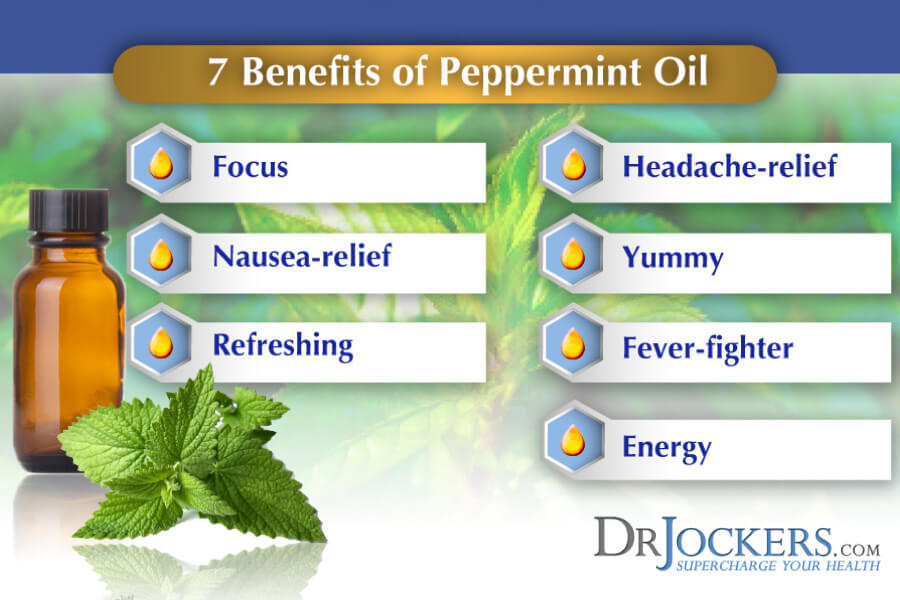
Chamomile
When you think of nighttime tea, chamomile is probably the first thing to come to mind. Most of us know that chamomile is great for relaxation and the research supports that belief (5). It is thought that chamomile provides a sedative effect due to a flavonoid called apigenin that binds to GABA receptors in the brain to promote relaxation. Apigenin is also well known for its anti-cancer properties.
My two favorite methods of using chamomile are in a high-quality tea or by aromatherapy. Additionally, chamomile oil can be combined with lavender oil in a healing bath. Some of my patients report that after a healing bath with lavender and chamomile oils they have gotten some of the best sleep of their lives!
Regular use of chamomile will also benefit oral health, reduce inflammation due to oxidative stress, better immune function, and digestion.

Linden Flower
Linden flower is commonly found alongside chamomile and valerian in teas for relaxation. While the research on linden flowers is pretty low, it has been used for thousands of years for the purpose of relaxation.
Many report having successfully used Linden flower as a relaxing agent before bed, and a small amount of research supports the sedative properties of this herb (6). Although probably not the most potent sleep aid on its own, a blend of known relaxing herbs along with linden flower may be beneficial.
Catnip
It’s likely that we’ve all witnessed the effect that catnip has on our feline friends at some point in our lives. Upon smelling the stuff, cats take on a mix of erratic and affectionate behaviors that have led it to be equated to cannabis for cats. Can this herb, so endeared by our pets, also give us a sense of calm and relaxation?
The evidence on this one is slim in terms of formal research, and yet it can be found in many herbal sleep blends. There is a decent amount of anecdotal evidence that catnip is able to settle the nerves and help one relax, and it is typically regarded as safe for human consumption.
It is said by some herbalists that catnip also contains a similar composition to valerian, which provides a little more insight into why it may improve sleep quality for many individuals. We offer many of these herbs in our Relax Calm product here.
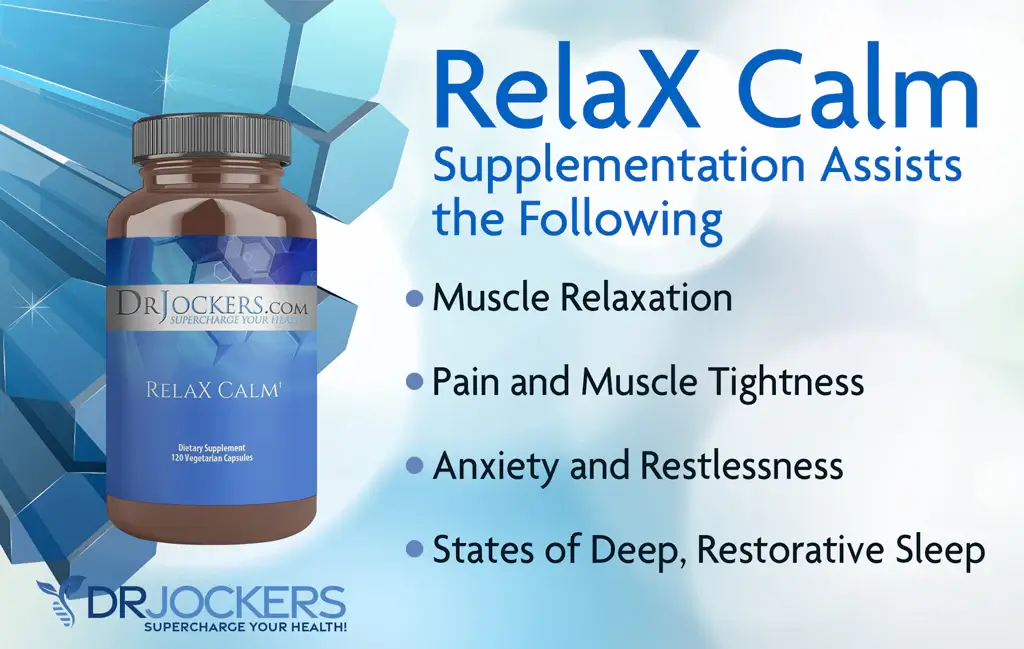
Nighty Night Tea (Traditional Medicinals)
I love this brand of tea because they are one of the few that use all organic ingredients and a strict set of quality/potency standards for every one of their herbs.
This blend contains many of the herbs mentioned in this article, including passion flower and chamomile, alongside some other herbs traditionally used for lifting the spirits, including lemon verbena and lemongrass. I always recommend this tea for my patients who are having sleep issues, although it is great for anyone who would like to improve sleep quality.
It can be purchased in most grocery stores, health food stores, or online here. This same brand also makes a Nighty Night tea with the addition of valerian, which has great reviews. It can be found here.
Give these a try and leave some feedback, I’d love to know how they work for you!
Final Remarks
Occasional inability to fall asleep can be remedied with the use of natural herbs such as those found in this article. If you find yourself consistently unable to fall asleep and must rely on these substances, then it is possible that some deeper issues need to be addressed.
I would recommend that anyone who is experiencing chronic insomnia first take a look at their nighttime routine and ensure they are properly priming their mind and body for a night of rest. For a deeper dive into how to naturally improve sleep quality, check out the strategies outlined in this article.

Inflammation Crushing Ebundle
The Inflammation Crushing Ebundle is designed to help you improve your brain, liver, immune system and discover the healing strategies, foods and recipes to burn fat, reduce inflammation and Thrive in Life!
As a doctor of natural medicine, I have spent the past 20 years studying the best healing strategies and worked with hundreds of coaching clients, helping them overcome chronic health conditions and optimize their overall health.
In our Inflammation Crushing Ebundle, I have put together my very best strategies to reduce inflammation and optimize your healing potential. Take a look at what you will get inside these valuable guides below!
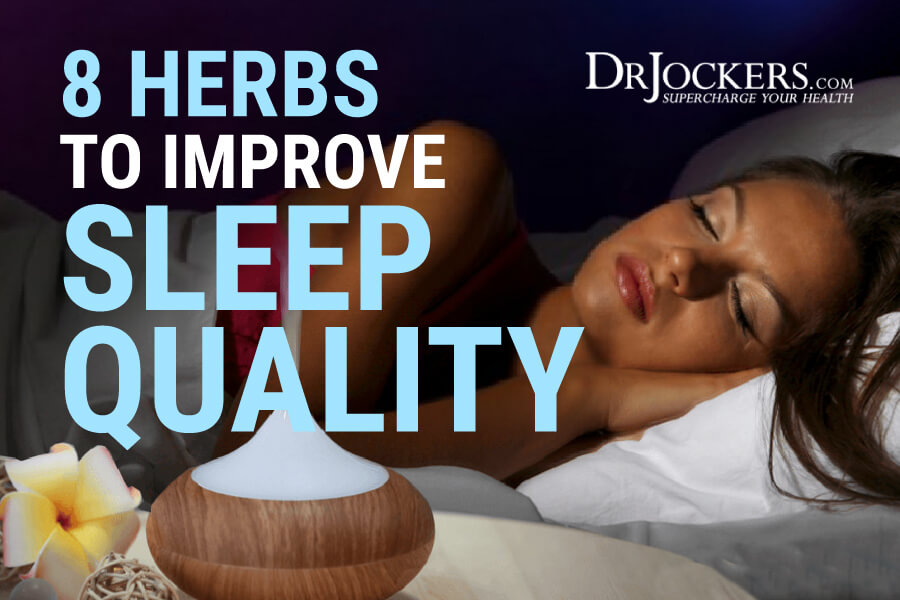
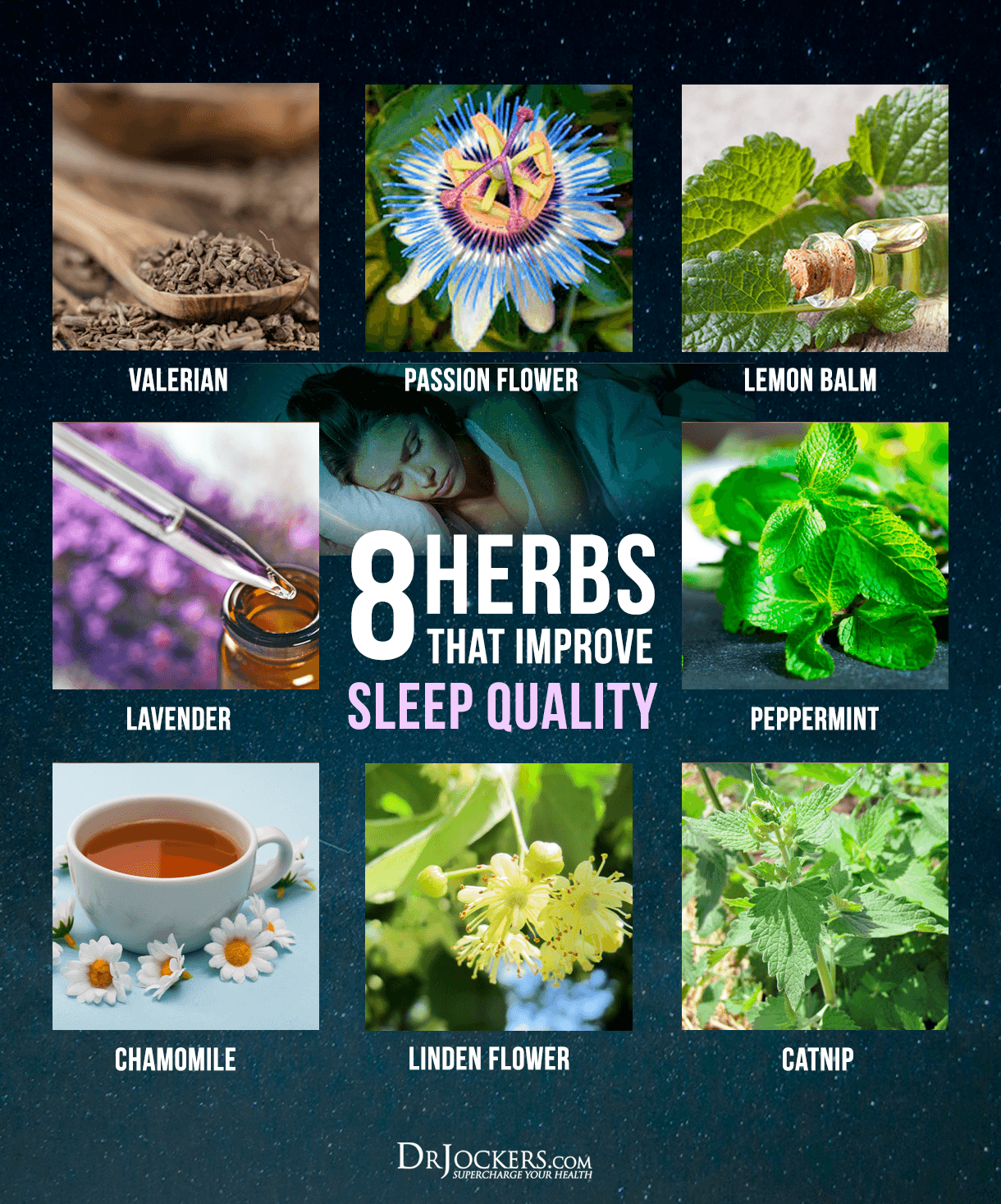
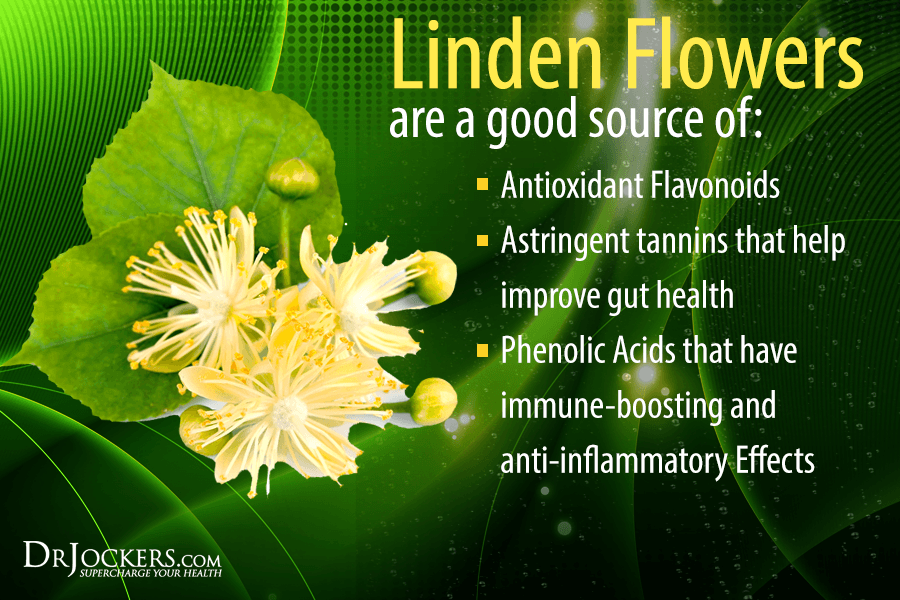
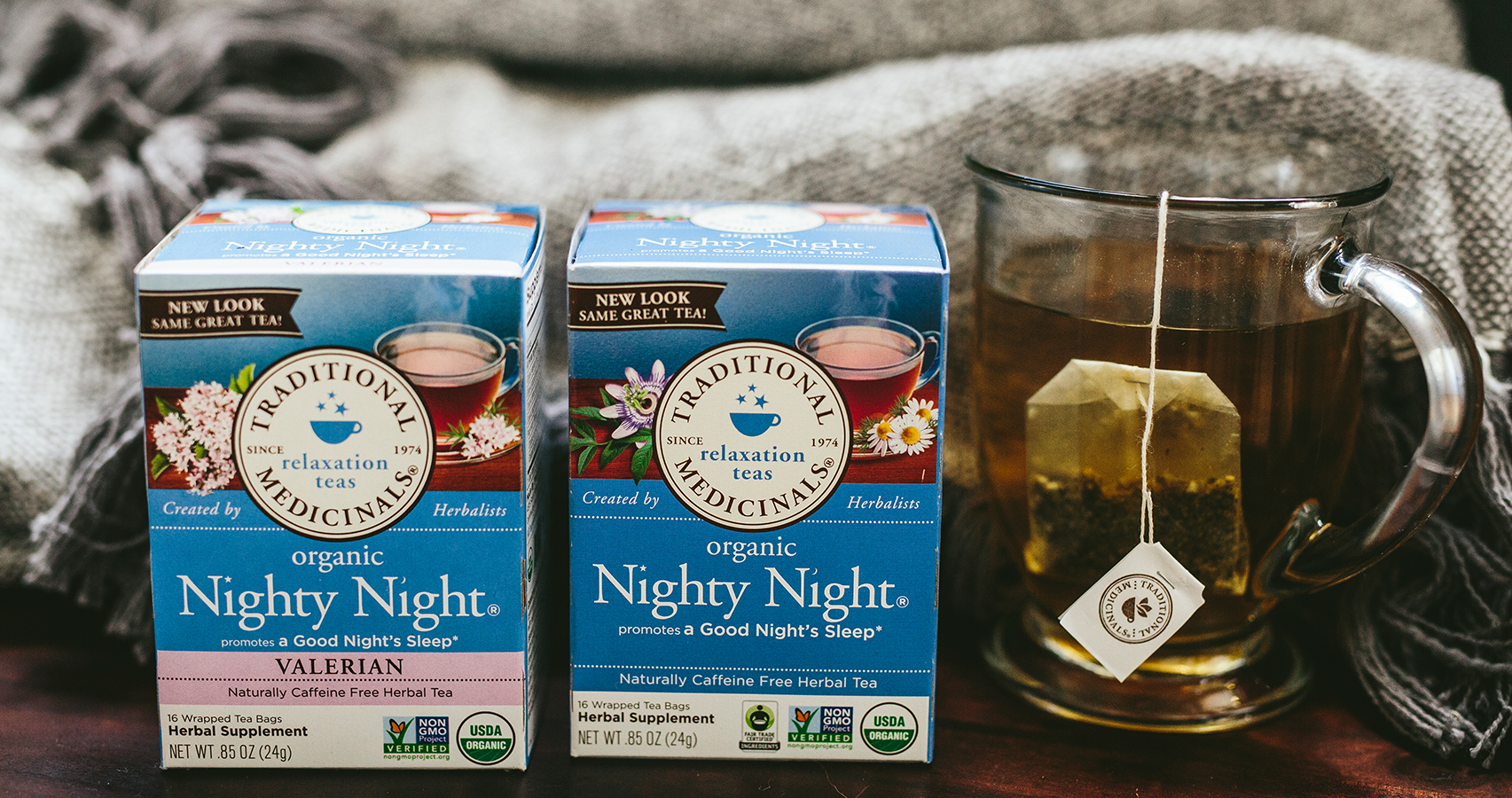




Excellent Round-up!!! Lots of Info packed in here. Thank you.
Thank you Kaye!
Hops could also be mentioned.
There are studies for Hops+Valerian:
https://www.progressivehealth.com/hops-can-help-improve-sleep.htm
Yes good point Allan, thanks for sharing!
While diffusing essential oils for sleep can definitely help….people need to understand to not leave on the diffuser for more than 30 minutes at a time with at least an hour before diffusing again(if a timer is available on the diffuser).
Essential oils can be counter productive if inhaled too much.
Inhalation is the most effective way to get the results from essential oils and goes directly into the blood stream through the respiration process.
Gary,
I have not heard of this effect. I would, however, only suggest diffusing a few drops of essential oil over the course of hours for aromatherapy use. Thanks for sharing!
Excellent article for also helping 10 % of the population that suffer with chronic insomnia …thank you !
Yes Syl, definitely a big problem!
Dear Doctor ,
I am suffer from insomnia for more 8 years and
Menopause for 6 years which cause me cannot
Fall asleep naturally .
After see doctor they said I am lack of seronton
Any vitamin you can Recomend that I can buy ,
I had try the below vitamin but it only work for 1 to 2 months each n my condition getting more
Worse — gaba , valerian , melatoni , L- tryptophan already but all only works for 2 to 3 months , pls kindly help and advise ?
Hey Emily, there are likely some deeper causes. Since you have gone through menopause, hormones that may help with regular sleep cycles are likely out of balance. You will probably need to take dietary and lifestyle strategies to see improvements in your sleep. Start with the strategies in these articles:
https://drjockers.com/12-ways-to-eat-during-menopause/
https://drjockers.com/5-benefits-healing-diet/
https://drjockers.com/15-strategies-beat-insomnia-naturally/
My sleep is impacted by annoying bouts of restless legs. Topical Magnesium oil is helpful but not always effective. I wondered if you would recommend any of the sleep nutrients or herbals specifically for RLS. Thank you
Hello Kate, yes here is a helpful article on RLS https://drjockers.com/restless-leg-syndrome/